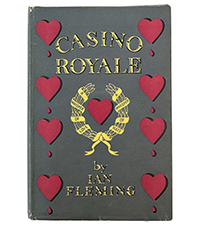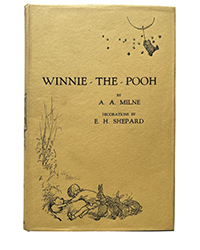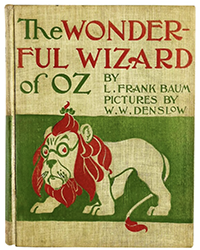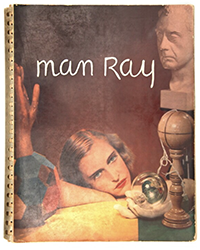David M. Lesser Fine Antiquarian Books has published their Catalogue 184 of Rare Americana. Their catalogues feature Americana, usually less than full book length, from the 18th and 19th centuries. Naturally, material relating to the Civil War and abolition are often found, though there appears to be more political matter this time. The divisions and insults that appear in today's American political discourse, which so many of us find new and disturbing, are not so new (though still disturbing). In the 19th century, American politicians were not particularly reluctant to get down in the gutter. The high principles of George Washington were quickly forgotten after he left the scene, to some extent even before. These are a few selections from this latest Lesser catalogue.
Politics isn't the only ugly thing that isn't new. This is a case of child abuse so awful it is hard to imagine. The pamphlet is The Trial of Stephen Arnold, for the Murder of Betsey Van Amburgh, a Child of Six Years of Age, from 1805. Arnold was a schoolmaster in Cooperstown, New York. Betsey was not only his pupil but may have been his niece. The Judge tried to stay neutral, but that wasn't easy before this defendant. As he told the jury, “she died because she did not pronounce the word gig or jig, as he thought proper [apparently she pronounced “gig” as “jig”] – he had whipped her seven times, and was an hour and a half employed in the horrid transaction...” Arnold fled to Pittsburgh but was captured and returned. He was convicted. Item 5. Priced at $850.
Here is another form of child abuse, but was done in the open. Half a nation went to war to preserve the privilege of abusing children this way. Item 1 is a manuscript document recording a sale “to the highest bidder” of Amos, “a Negro boy slave...of dark complexion.” He was sold to one Thomas N. Gardner, agent of Emily Hantz, for $700. Amos was “about nine years of age.” A nine-year-old, separated from his mother and entire family, to become someone's slave? For this right the South went off to war where hundreds of thousands of people died to stop or to preserve this practice? Amos is worth remembering when you read apologists claiming slavery was humane and beneficial to the slaves. This sale took place in 1859, so hopefully Amos received his freedom five years later a result of Lincoln's Emancipation, and found his family again. $1,250.
Lucy did a little better. She had already reached the milestone age of ten when this bill of sale was recorded, intra-family from Moses Leslie to Alexander Leslie. Moses was Alexander's father. Alexander paid $500 to buy this “slave for life,” but he did not get the lifetime use he expected. It was already late 1861. Only a little over two years later, Lucy was freed. Item 2. $1,000.
Here is an example of twenty-first century politics in 1808. Item 65 is “The Republican Crisis: Or, the Exposition of the Political Jesuitism of James Madison, President of the United States of America. I'm not sure what “political Jesuitism” is, but surely it can't be good. The brave author, who hides behind the name “Observant Citizen of the District of Columbia,” attacks the “crooked and weak policy of Mr. Madison's administration,” his “weak and jealous disposition,” his “political turpitude and depravity,” “that he was never a sincere friend of the republican cause” (which he promoted from the nation's earliest days), “a bosom friend of Alexander Hamilton” (which would have surprised Hamilton), and that as Jefferson's Secretary of State, he retained key Federalists who “betrayed...the wise policy and plans of Mr. Jefferson” (with whom Madison was long a close friend and ally). “Observant Citizen” endorsed Madison's opponent for the presidency in 1812, of all things, the candidate of the Federalists. He even attacks Dolley Madison, saying “Mrs. Pain (actually Miss Payne was her birth name), a lady of tory principles,” has influenced Madison to no good, “such is the effect of female influence on men of weak minds!” Finally, Mr. Citizen informs us that Madison's “frensied ambitions” has caused him to resort to “pusillanimous subterfuges” such as “sickens the mind.” It was all to no avail. Madison defeated De Witt Clinton anyway. Item 65. $750.
This is another political attack, this time on Eben F. Pillsbury. Who? Pillsbury was the Democratic candidate for Governor of Maine shortly after the Civil War, and the New England states were not very hospitable to Democrats at the time. Pillsbury was no “doughboy” during the war, being a newspaper editor while his Republican opponent, Joshua Chamberlain, was a war hero, highly honored for his bravery and performance at Gettysburg. This four-page brochure is headed Eben F. Pillsbury's Record! As Written with His Own Pen. This piece claims Pillsbury's editorials expressed “disloyal sentiments during the very crisis of his country's fate.” It claims Pillsbury charged Lincoln with “deception and falsehood” and “encouraged the hosts of rebellion.” In contrast, the writer states that Chamberlain's words were “written with his own sword.” Chamberlain handily defeated Pillsbury this time and in two repeat match-ups. Item 67. $275.
If you have heard anything about New York Democratic politics in the two decades before the Civil War, you have undoubtedly heard the strange names of the “Hunkers” and “Barnburners,” not to mention the “softs” and “hards.” Here is a book that will tell you more about them, though from the point of view of a soft Hunker. The Hunkers were more for big government, public works and such. They were called “Hunkers” as their opponents thought they were hankering for government jobs. The Barnburners were opposed to public debt and state banks. However, as the years went forward, the two became even more divided on a different issue - slavery. The Barnburners were against it, the Hunkers could live with it. The Barnburners got their name over their perceived willingness to burn down the barn, that is destroy their own property for the sake of extreme positions. Among the Barnburners was former President Martin Van Buren, who became the 1848 presidential nominee of the anti-slavery Free Soil Party. While Van Buren later returned to the Democratic fold, some Barnburners went on to be founders of the Republican Party. The Hunkers included Horatio Seymour, later New York Governor, someone Republicans saw as too soft on the South, and the Democratic presidential nominee in 1868, given the honor of being walloped by U. S. Grant. He too was a “soft” Hunker. These were Hunkers who wanted to reach an agreement with the Barnburners, while the “hard” Hunkers wanted nothing to do with the other faction. Item 81. $500.
David M. Lesser Fine Antiquarian Books may be reached at 203-389-8111 or dmlesser@lesserbooks.com. Their website is www.lesserbooks.com





![<b>Sotheby’s:</b> Ernest Hemingway. <i>Three Stories And Ten Poems,</i> [Paris], (1923). First edition of Hemingway’s first published book. $75,000. Sotheby’s: Ernest Hemingway. Three Stories And Ten Poems, [Paris], (1923). First edition of Hemingway’s first published book. $75,000.](https://ae-files.s3.amazonaws.com/AdvertisementPhotos/acf970a0-a15d-4c79-aa24-5e8e414cb465.png)




